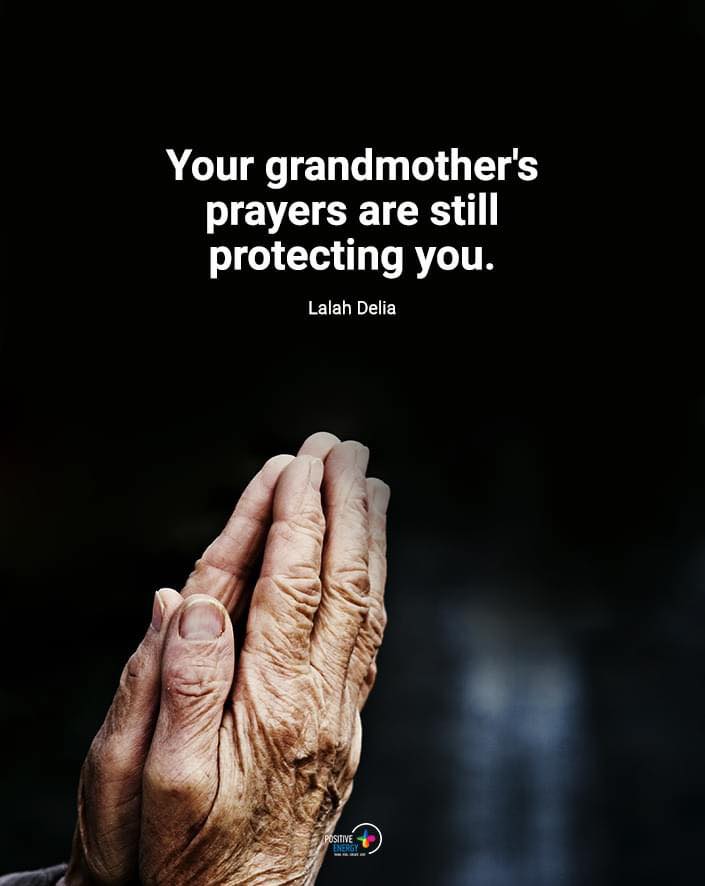There are few experiences more crushing than losing someone you love. Your world shatters and turns upside down. You may feel lost and helpless, and you may not know who or what to turn to. It’s not unusual to want to communicate with or talk to those you’ve lost, your deceased loved ones. Many people frown upon this, but the fact is that it has been proven to be a positive coping mechanism.
Here’s How Mental Health Experts Explain Why It’s Healthy To Talk To A Deceased Loved One
1. Understanding Grief
There’s only so much you can handle at one time. This is why grief happens in five stages, also known as the Kübler-Ross model of grief. You cannot leap from being in mourning to suddenly feeling full of positive thinking in one go. In most cases, you will go through the following stages:
· Stage 1: Denial
Many people experience numbness or disbelief when they are grieving. It is a defense mechanism that allows them to handle the sudden shock of emotion.
· Stage 2: Anger
Loss is something you can’t fix or turn back. When you overcome denial, you begin to feel all the hurt you were dissociating. The helplessness of loss can make you angry, and you may direct that frustration to many different people or things.
· Stage 3: Bargaining
Now, you begin to dwell on things past. You start to ponder the “what if”s of the scenario. Was it your fault? Could you have helped? What if things had been different?
· Stage 4: Depression
This is where you start to feel all that severe sadness that most people associate with grief. You may lose your will to do basic tasks. You may feel unbearably upset and have trouble focusing.
· Stage 5: Acceptance
This is the final part of the grieving process. It is when you have reached a point of acceptance. You know that your loss cannot be altered, and you start to heal and move forward.
2. Talking To A Deceased Loved One Helps Emotional Processing
The loss of someone you love is a lot to process. Many people become stuck in certain grief stages as they attempt to heal, and this is where talking to a deceased loved one comes in. Here are some examples of how this works:
· Releasing Your Feelings
When you are angry or depressed about a loss, you can express all your emotions by talking to a loved one who has passed on. You can talk about all those emotions you’re afraid to discuss with others. Multiple people say this helps lower their anxiety about the loss.
· Recovering From Denial
When you have trouble coming out of feelings of disbelief when you’re grieving, talking to the person who has passed away can help you overcome them. This also applies to the bargaining phase. Note that this works best when you talk out loud!
· Providing Feelings of Confidence
Your conversations with the person you’ve lost will change as you reach the acceptance phase. You slowly regain confidence, and by talking to them – and sometimes feeling a little inkling that they’re replying – you’re helping yourself to move forward with this person still in your heart.
3. Talking To A Deceased Loved One Aids The Transitional Phase
A lot of adjustment needs to be done after you lose someone close to you. Many people who have not lost a loved one believe that grief is what you process and then get over completely. This is, sadly, not the case.
When someone you care about passes away, you go through a transitional phase. You now have to learn to live in a world without them, which is a permanent change in your life. It’s not something you can “get over,” no matter how much positive thinking you use, or how much therapy you get, or how much you know you’ve moved on years down the line.
You are moving from a phase where you were with this person to one where you cannot be with them. You have to change and adapt. Talking to a lost loved one can ease that period and make for a smoother transition. Here’s how.
· It Provides Motivation
It is tough to want to adjust to a world without someone you love. You may not want to make the jump to push on without them. You may feel terrified of the idea of a life that they cannot be a physical part of. This can make it hard for you to want to begin adapting.
As you talk to your lost loved ones, you can slowly realize they will never truly leave you. Their spirits will live on around and within you. You can even ask them for help in moving forward, and you may find it easier to reach solutions this way.
· It Can Help You Love Them In A New Way
Loving someone who is too far to reach is not something humans are naturally prepared for. You’re used to hearing or reading replies. You are used to physical touch. You’re used to seeing them in front of you.
When you talk to a deceased loved one, you slowly begin a new dynamic with them. You learn that there are ways you can love and honor them from a distance. You realize that it is possible for you to love them, even as you are apart – and this is very helpful for someone who is grieving.
· It Lets You Get Things Off Your Chest
When you suddenly lose someone dear to you, there’s a lot left undone, unsaid, and unshared. You may feel empty and hopeless, at a loss because of everything you could never do with that person.
By talking to a deceased loved one, you can find closure for these issues healthily. You can make promises to them that make up for what you couldn’t do. You can seek their forgiveness. Additionally, you can tell them the things you wish you’d said. This can give you feelings of comfort, allowing you to heal.
· It Provides Peace of Mind
It can help make you feel better when you talk to those you’ve lost about big life changes. You may tell your parents that you’ve achieved your dream job. You may talk about something exciting that happened that someone you love may have enjoyed.
This ability to share things with those who passed away can help provide a sense of companionship and togetherness that allows you to feel at peace. Instead of mourning that they cannot be there to hear about it, you know that they are listening from a better place.
· It Helps You Release The Burden Of The Transition
Your heart and mind need time to change from your previous world to this new, quieter one. When you talk to someone who has passed, you are helping create baby steps for your brain to walk through between these worlds.
4. But It’s Less Effective On Social Media
Today, many individuals turn to social media to “talk” to their loved ones who have passed on. They comment on posts of loved ones who pass on, make memorial posts, tag them in heartfelt messages they’ve written to them, or put up statuses on the Facebook walls of those passed.
According to an author and Massachusetts Institute of Technology professor, Sherry Turkle, this behavior may not be as positive as many believe. This is for a number of different reasons, as expressed below.
· It Is Not A Conversation
The more cathartic parts of talking to a deceased loved one involve a more nuanced kind of communication that you can almost imagine them responding to.
On social media, it doesn’t entirely turn out the same way. You watch everyone else’s well-wishes gather, and it becomes abundantly clear that these messages are more for the living, not for the dead.
Additionally, it’s not relatively as easy to think of someone passed-on as checking their social media from heaven or from wherever you believe they are. As such, it can be less therapeutic.
· It Keeps You Trapped In A Loop
When you linger on the profile pages of loved ones you’ve lost, you often do so out of a strong desire to be with them again. You want to feel, sense, and relive their last moments. You linger on the last picture they posted and re-read their previous statuses.
The issue is that it can make you feel like this person is still around. After all, they continue to live on in this virtual world. You repeatedly view their profile to grasp at a tiny piece of things that once were.
This is not unhealthy, but it can make it more difficult to move on. In some cases, it can lead to obsession.
· It Is Less Personal
You can say that you’re posting heartfelt messages on social media not for others to see but for the deceased to receive as a memorial; however, that doesn’t change the very nature of what social media is. It is a platform for sharing, not for privacy.
Nothing will alter the fact that sharing your memorial post on social media will influence what people think of you. And nothing will alter the fact that you are aware of this.
When your words are out there for everyone to see, it can often be less effective. The lack of personal nature of these social media memorial posts can cause you to lose the most essential part of them – the parts that help you to move on, the parts that give you closure, and the parts that truly help.
There’s nothing inherently wrong with using memorial pages on Facebook. There’s also nothing wrong with sharing your grief and emotions online. But is it the healthiest method? Not necessarily.
Final Thoughts On Why Mental Health Experts Think It’s Healthy To Talk To A Deceased Loved One
Grieving a deceased loved one is a complex process. It is far from black and white. If something deemed healthy by mental health experts helps you to heal from the pain, there’s no shame in doing it.
Of course, do note that everyone grieves differently. What works for you may not work for others, and vice versa. It’s essential to respect the grieving processes of others. Still, as you do so, don’t forget to respect your own. Don’t be afraid to seek help from a therapist or counselor if needed!















 Community
Community

